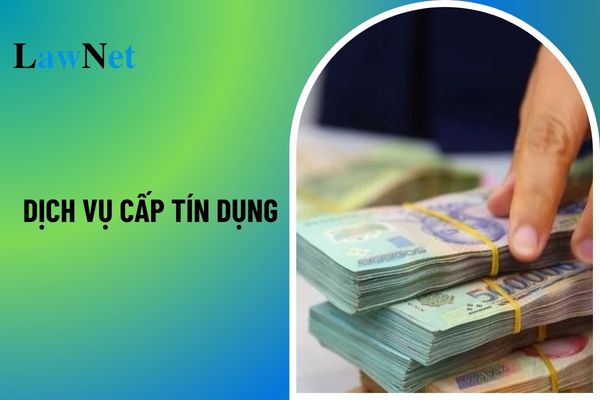Shall 0% VAT rate apply to credit service in Vietnam? Which entities are value-added taxpayers in Vietnam?
Shall 0% VAT rate apply to credit service in Vietnam?
Based on Clause 1 Article 8 of the value-added tax Law 2008 as amended by Clause 3 Article 1 of the Amended value-added tax Law 2013 and Clause 2 Article 1 of Law No. 106/2016/QH13, the specific stipulations regarding the 0% tax rate are as follows:
Tax Rate
- A 0% tax rate is applicable to exported goods and services, international transport, and goods and services not subject to value-added tax as specified in Article 5 of this Law when exported, except for the following cases:
a) Transfer of technology, assignment of intellectual property rights abroad;
b) Reinsurance services abroad;
c) Credit services;
d) Capital transfer;
đ) Derivatives;
e) Postal and telecommunications services;
g) Export products as stipulated in Clause 23 Article 5 of this Law.
Exported goods and services are those consumed outside Vietnam, in non-tariff zones; goods and services provided to foreign clients according to the regulations of the Government of Vietnam."
....
Based on the above provisions, credit services are not subject to the 0% value-added tax rate.

Shall 0% VAT rate apply to credit service in Vietnam? Which entities are value-added taxpayers in Vietnam? (Image from the Internet)
Which credit services are subject to value-added tax in Vietnam?
According to Point a Clause 8 Article 4 of Circular 219/2013/TT-BTC as amended by Clause 3 Article 1 of Circular 26/2015/TT-BTC, specific credit services not subject to value-added tax are stipulated as follows:
(1) Lending
(2) Discounting, rediscounting of negotiable instruments and other valuable papers
(3) Bank guarantees
(4) Financial leasing
(5) Credit card issuance
- In cases where credit institutions collect fees related to credit card issuance, fees collected from customers as part of the credit service process (card issuance fees) under the credit institution's lending regulations for clients, such as early repayment fees, late payment penalties, debt restructuring, loan management, and other fees, are not subject to value-added tax.
- Regular credit card transaction fees not part of the credit granting process, such as fees for reissuing credit card PINs, providing copies of transaction invoices, chargeback fees, reporting lost or stolen credit cards, credit card cancellation fees, credit card type conversion fees, and other fees, are subject to value-added tax.
(6) Domestic factoring; international factoring for banks authorized to conduct international payment;
(7) Sale of debt-secured collateral by the credit institution or by the enforcement agency or the borrower itself if authorized by the lender to sell the collateral to repay the secured loan, specifically:
- The collateral being sold is a secured transaction asset registered with the competent authority as per regulations on secured transaction registration.
- Handling of the collateral complies with the law on secured transactions.
(8) When the repayment term expires, if the asset owner cannot repay the debt and has to transfer the collateral to the credit institution to handle according to the law, the involved parties shall perform the transfer procedures as per legal regulations without issuing a VAT invoice.
(9) When a credit institution receives collateral to replace the repayment obligation, they shall account for the increase in asset value for business operations as per regulations. If the asset is subject to VAT upon sale, the credit institution must declare and pay VAT in accordance with regulations.
(10) Credit information services provided by units or organizations under the State Bank of Vietnam to credit institutions for use in credit granting activities as per the State Bank Law.
(11) Other forms of credit granting in accordance with law.
Who pays value-added tax?
According to Article 4 of the value-added tax Law 2008, the specifics regarding the taxpayers are as follows:
Value-added tax payers are organizations and individuals that produce or trade goods and services subject to VAT (hereinafter referred to as business establishments) and organizations and individuals that import goods subject to VAT (hereinafter referred to as importers).

